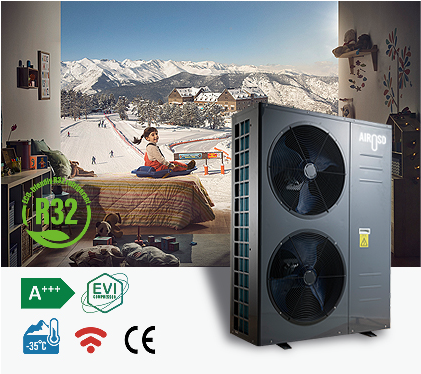Are you thinking of installing a heat pump water heater but are overwhelmed by the options? Choosing the best heat pump water heater necessitates careful consideration of a number of important variables. In this article, we will discuss the essential criteria to help you make an informed decision and select the most suitable heat pump water heater for your needs.
What Is A Heat Pump Water Heater?
A heat pump water heater is an energy-efficient alternative to traditional water heaters. It uses electricity to move heat from the surrounding air or ground to heat the water, rather than generating heat directly. This procedure makes heat pump water heaters more energy efficient, potentially saving money and reducing environmental impact.

Size And First-Hour Rating
Size
The size of a heat pump water heater is an important consideration based on the energy source or system you are using. For tankless or demand-type water heaters, you need to determine the flow rate, which refers to the number of appliances using hot water simultaneously. To guarantee a steady supply of hot water, choose a heat pump water heater that can fulfill the needs of all your gadgets. Consider the appropriate water temperature necessary for proper performance as well.
First Hour Rating
The first-hour rating of a heat pump water heater is the amount of hot water it can produce per hour when the tank is full. Several factors influence this rating, including the tank's capacity, the size and nature of the burner, and the heat pump's efficiency. A larger tank capacity allows for a greater volume of water to be collected within a specific time frame. A greater burner size produces more water faster. It is best to select a heat pump water heater with a first-hour rating that matches peak-hour demand depending on the number of people in your household and the hot water-powered appliances that are in use.

Domestic Hot Water Heating Pump Manufacturer
Fuel Type
Fuel
The choice of fuel for a heat pump water heater affects its cost, size, and efficiency. Different fuel sources are available, each with its own advantages and disadvantages. Here are some common fuel options:
Electricity: Electric heat pump water heaters are inexpensive and simple to install. They are appropriate for places with a consistent and dependable electrical source.
Fuel Oil: Fuel oil heat pump water heaters are common in areas where electricity prices are high or unreliable. However, they require a storage tank for the fuel oil.
Geothermal Energy: Geothermal heat pump water heaters utilize the stable temperature of the earth to heat water. They are extremely efficient but may need expert installation.
Natural Gas: Natural gas heat pump water heaters are less expensive and emit less greenhouse gases than other fuel sources. However, they require access to a natural gas supply.
Propane: Heat pumps powered by propane Water heaters are a popular option in locations where natural gas is not available. They require a propane storage tank.
Solar Energy: Solar heat pump water heaters use energy from the sun to heat water. They are highly efficient and environmentally friendly, but their performance may vary depending on sunlight availability.

Overall Costs
The overall costs of a heat pump water heater encompass various economic factors. These costs include the initial purchase price, installation expenses, maintenance costs, fuel expenses, and any additional expenditures associated with the system. Before making a purchase, compare the prices of heat pump water heaters to those of other options. This comparison will assist you in determining the most cost-effective and appropriate alternative for your unique requirements.
Conclusion
Choosing the right heat pump water heater involves considering factors. Besides, if you are looking for a heat pump for your house or commercial building, AIROSD is your best choice. We offer a wide range of heat pump water heaters including swimming pool heat pumps. If you are interested in it, get in touch with us now!



